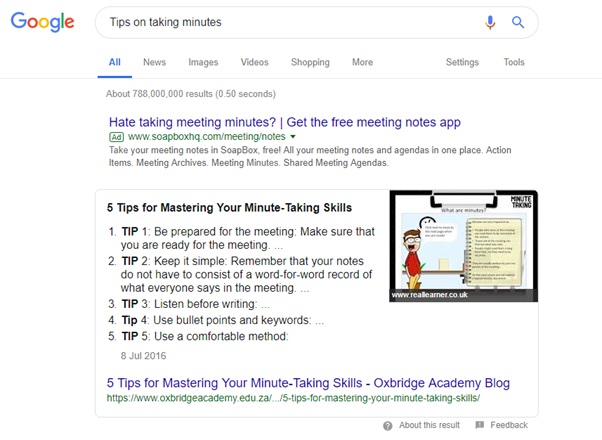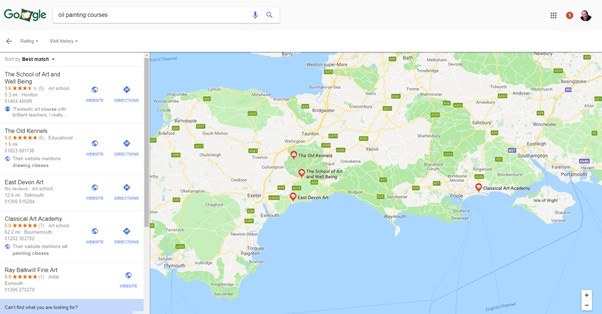Blame, FE College Insolvency Regime, Reputation, Recruitment and Survival

Sometimes Things Go Wrong. It’s How You Then Handle Things That Determines Your Reputation and That of The Sector.
FE is yet again living in “interesting times”. And when that happens people often get criticised in official reports or blamed in the media. We then get other people telling us that this is unfair and, ironically, blaming the media or official body.
Blame rarely serves any purpose. Individuals often blame others because they themselves are hurting. They feel vulnerable and understandably react. It might make them feel better, but it rarely solves the problem.
The logical thing to do is much harder to achieve. That is to determine the cause, NOT the blame, and ensure the problem doesn’t happen again. We need to understand the causes of a problem and design something into our processes and culture to prevent it happening again. I’m not saying that this is easy but it has more chance of success than blame or blaming those that have blamed. I’m not saying those that make serious errors should not be held responsible for their actions; just that blame alone isn’t a solution.
Information Not Blame or Silence
The myriad of bad press the sector has experienced in recent months has been very damaging to FE’s reputation. Local and national papers have carried stories of alleged expense scandals, inflated salaries and college bailouts.
Couple this with alleged grade inflation, poor Ofsted reports, strike threats at several colleges, a decrease in apprenticeship numbers etc and the public draw their own conclusions. The problem is we, as a sector, have largely sat back and said nothing.
As Ruth Sparks recently wrote, “Hiding the truth inevitably leads to negative headlines.”
In other words we shouldn’t wait for bad news to hit the headlines. We need to take a proactive stance and use PR to our advantage. We should release potentially damaging stories and explain the background and our actions.
I don’t believe we can “blame” the media when they investigate stories, especially when the story is supported by official reports. Where public money is concerned the public has every right to know how it is being spent and that everything is above board.
The role of the Fourth Estate is to investigate, challenge and report. Without it Watergate would not be a word we associate with Nixon and wrongdoing. I’m not suggesting FE is undergoing its own Watergate or anything like it. But if we don’t provide the facts then the media will read reports, listen to rumour, speculate and fill in the voids in their coverage.
When FE Gets It Right
There are excellent examples where FE negates bad press.
I was delighted to see a recent article by Lowell Williams, Chief Executive Officer, Dudley College of Technology, about their Saudi operation. Not delighted by the news that they were pulling out of a contract. Delighted that they had taken the PR initiative and explained what was happening and why they had pulled out. They made it clear that the students at Dudley came first, and the media always find that difficult to argue with.
If the Dudley story hadn’t been told it could have been investigated by the media and reported in another light. The media only have to pose questions, not get a full and frank answer, and the waters can soon get muddied. This is happening in FE too often these days. So Dudley are to be congratulated on being seen to be open and honest.
In The Spirit Of Providing Answers .. Some Positive Suggestions
I’ve suggested we should take the PR initiative. Without it we get a bad press, numbers start to drop and the backdrop is the Insolvency Regime.
As long ago as 1850 Charles Dickens provided a simple insolvency equation when Wilkins Micawber talked about income and expenditure in David Copperfield. And if ensuring income exceeds expenditure is at the heart of solvency then recruitment must be vital to income. High recruitment levels are in turn related to our reputation. Hence the importance of PR.
But PR is about more than the occasional media release. PR and “Building a Brand” go together. We need to use PR to build a strong brand so that people think of us in a positive manner whenever they need to learn something new, get qualifications, or enjoy their leisure time.
Building a brand isn’t about logos, strap lines or even HSBC’s latest “sound identity”. A brand is what people say about you when you are not there. It’s what they say about you to their mates in the pub and elsewhere.
So we need to give people positive experiences on which to base their discussions.
The list is long but here are just a few things that many providers can do better.
Stop using premium rate phone numbers for enquiries (at least one college charges school leavers 7p/minute when they phone with an enquiry, the premium rate number is on the home page of their website, but it doesn’t make it clear it is a premium rate number).
Offer Taster Courses of sufficient length that prospective students get a flavour of their chosen course. To me a three hour course isn’t a Taster Day. So why do some colleges call it a day? Why not make a full day Taster Course an entitlement in your area? Ensure that “careers advice” is a right for every school leaver in your catchment area.
Ensure staff on exhibition stands are well informed, not eating/drinking/reading the paper/marking, and get sufficient breaks to remain alert and fresh.
Respond to student reviews on Google and other review sites. The hospitality sector frequently turns negative reviewers into advocates. Remember, whether people complain or praise, you have a valuable insight to build on.
Answer phones promptly. Don’t delay responding to email enquiries. Don’t leave “we are closed” answerphone messages on all summer. Don’t hide behind “there’s no one in that department this week” messages (despite holidays someone should be available to phone back within a few hours or you will lose that potential student).
Don’t waste too much time on Social Media. A handful of providers make it work extremely well but, in the majority of cases, the return on investment is very poor. If in doubt measure the ROI and then decide.
Profile your customer base. Know where they hangout, what they watch, read and listen to. Base your marketing on them, NOT on your preferences, the CEOs preferences or hearsay. Marketing should be evidence based. You are NOT your market.
Be visible. As experts in your field I’d expect a core of selected staff to be involved in at least one major media story or PR event each month. The media are always searching for experts to be interviewed about breaking stories. Finding one expert from amongst hundreds of staff isn’t too demanding. In my own case I get interviewed by the BBC, or one of the nationals, at least once a month (see a selection of stories here). When people regularly hear experts from xyz college the providers brand soon rises to a high level in their estimation. Register your expertise with ExpertSources.co.uk. They offer education rates. Some FE providers get PR right. For the third year in a row staff at Havant & South Downs College are presenting at DigiFest. See Dan Beale’s article on The Future of Education.
Remember that adults WILL pay for courses. Most providers complain about the lost of the AEB and lack of related courses. Others take the initiative and run courses that attract full cost fees. E.g. Bedford’s Minute Taking course.
Say “Thank you”. When did you last send an email to someone booking, or completing a course, and thank them for their business? It’s simple, can be automated if you wish, and costs next to nothing.
Say “Please” ss in please book again. When did you last send individuals a reminder that their First Aid, Food Hygiene or similar permission to practice certification needed updating? Again the costs are negligible and organisations that care this much are seen in a positive light.
Attract young people early in their schooling. Don’t wait until they are 15. Consider what you can do for them long before they start thinking about careers.
Etc Etc Etc .. the list of positive things that can be done is huge. Some providers are excelling in some curriculum areas .. other in none.
Education as a Commodity
This will upset many people, but post-school education has become a commodity. It sells largely on price and location rather than quality. Quality by and large is reasonably good in most colleges and Ofsted chases those where it isn’t. But the punter doesn’t really understand Ofsted grades and relies on other factors.
To further aggravate the issue more and more employers are ignoring qualifications. For example Google, Apple and IBM no longer insist on degrees for many roles. And you don’t need quals for many other jobs. If you don’t believe me ask people like Raymond Blanc, Alan Sugar, Richard Branson and a host of others. Not everyone is going to get to their level of success, but many people I know in business are self-educated and very successful. With more and more online opportunities to undertake micro-courses and bitdegrees it is likely that more students will train on the job, obtaining new skills as they need them, without apprenticeships or T levels! Watch this space.
So when most providers look the same, and offer the same courses, how do you shine and attract more students? Having a good reputation is one way. Being highly visible also helps.
So when I search for tips on taking minutes I am delighted to see a college on page one of Google.

The problem is that it isn’t Bedford or any other UK college. It’s the Oxbridge Academy in Stellenbosch, South Africa. There were 778 million pages that answered my query, but a South African distance learning college beat everyone else on Google.com.
These less developed nations can teach us a thing or two! In colleges that use Google Classroom and other VLEs why is the marketing department not ensuring they use the latest tech? Using social media effectively is just one small step in this direction; there is far more to being digital than one small step.
Smart marketing people and more alert colleges will no doubt see the sense of linking good content to their courses. In the above case minute taking courses are not offered but they use the enviable page one domination to link to Business Admin and Secretarial courses.
Now think through the sort of content you need to offer to market everything from catering and construction to languages and zoology.
Page One of Google – Some Examples
Here’s an example of how I use similar tactics to market a book. Search for terms like Three Types of Advertising, How to Market a Café, How to Market a Pub. If SEO works in one or more of these cases (and it is admittedly an inexact science with potentially millions of possible results), you should find my website on page one of Google. And if I can do this then so can a proficient marketing department. (I’m willing to guide anyone that want help).
Being heard on the BBC, speaking at DigiFest, being found on Google and many other strategies can contribute to higher recruitment and retention rates. The result is improved financial viability and less worry about insolvency.
And in business better reputations lead to premium prices. So instead of offering commodity courses you could offer premium priced courses. Don’t take my word for it. Read about this halo effect in a paper by Dowling and Wei, 2018. They suggest that a good corporate reputation makes consumers less price sensitive .. but they commence by talking about scandals and crises.
This takes me neatly back to my original premise. We need to manage our reputation far better and ensure strong reputations and values that lead to recruitment. Because strong recruitment leads to improved income and it is the income/expenditure balance that is at the heart of solvency and insolvency.
We’ve Always Done It This Way
But before I finish let me say a few words about “we’ve always done it this way”. If FE is to survive it has to adapt.
Look at the changes happening in the training world. There was time when we would approach employers to upskill their workforce. Today individuals are taking more responsibility for their own upskilling.
“We are entering a new paradigm where people are now in charge of their own employability; that’s a huge disruption,” says Jean-Marc Tassetto, ex-head of Google France and co-founder of Coorpacademy. “We used to think employers, unions or government were in charge of reskilling. It no longer works that way.”
A year ago I wrote about BitDegrees and MicroDegrees. In the last year the need to target individuals with exactly what they need at exactly the right time has accelerated. Individuals, not employers, are now more likely to search for things like Minute Taking courses.
In my own case I want to take a palate knife oil painting course but finding one is a real struggle. Like many others I’m willing to pay £165 or a little more a day for the right course. But colleges tell me there is no call for such courses.
So I’ve now got a group of friends together and we are bringing in another friend from France to run a one day introductory course. But why, oh why, doesn’t a local college offer it. The few courses that are listed on Hotcourses are a few hours a day over many weeks. This means you have to live local to the college and this restricts recruitment. But of course we’ve always run courses with this mode of attendance.
How People Search For Courses
Not everyone knows about Hotcourses. Many people searching for a course go online and Google. Google in its wisdom assumes they want a course local to them unless told otherwise. The results are amazing.
Look at the screengrab below.

With this type of search Google often resorts to a map and information on Google My Business (GMB). Usually this shows something very local. But due a lack of courses, in this case, Google has shown a much larger area.
In this case not one college is listed as running any form of oil painting course.
It gets worse when I Google Plumbing Courses. Colleges offer these but Google hasn’t listed them so I’m left with the private sector offering.
Why isn’t Google Finding College Courses?
Simple. In some cases colleges are failing to claim their “business” on GMB. And where they do claim them there are few examples of them being used to ensure they become a PR and recruitment opportunity.
GMB accounts need optimising as much as a website. They need keywords, images, videos, content rich posts. One college I looked at recently had limited photos and the one that caught my attention was the one of a door saying No Entry. It didn’t exactly sell a warm, welcoming college I wanted to study at.
And where providers take ownership of their GMB account they rarely seem to respond to praise or complaint.
Moving With The Times
It’s creating new opportunities for educators that cannot be ignored. It was back in 1964 when Bob Dylan sang ‘Then you better start swimmin, or you’ll sink like a stone, for the times they are a-changin’ written as an anthem for the changing world that Dylan observed around him.
“We are entering an unusually creative period of human history. Those who embrace this kind of change will prosper and companies that study and embrace this fluid ‘jobscape’ will build flourishing enterprises in the years ahead,” Thomas Frey
Let’s stop doing things the way we always have and start understanding how to use the latest marketing, tech and PR techniques to enhance FE’s reputation.
Stefan Drew, previously director of marketing at two FHE colleges and for over a decade has consulted with colleges, universities and private providers throughout the UK, Europe, Africa and the US. Connect with Stefan on LinkedIn.











Responses